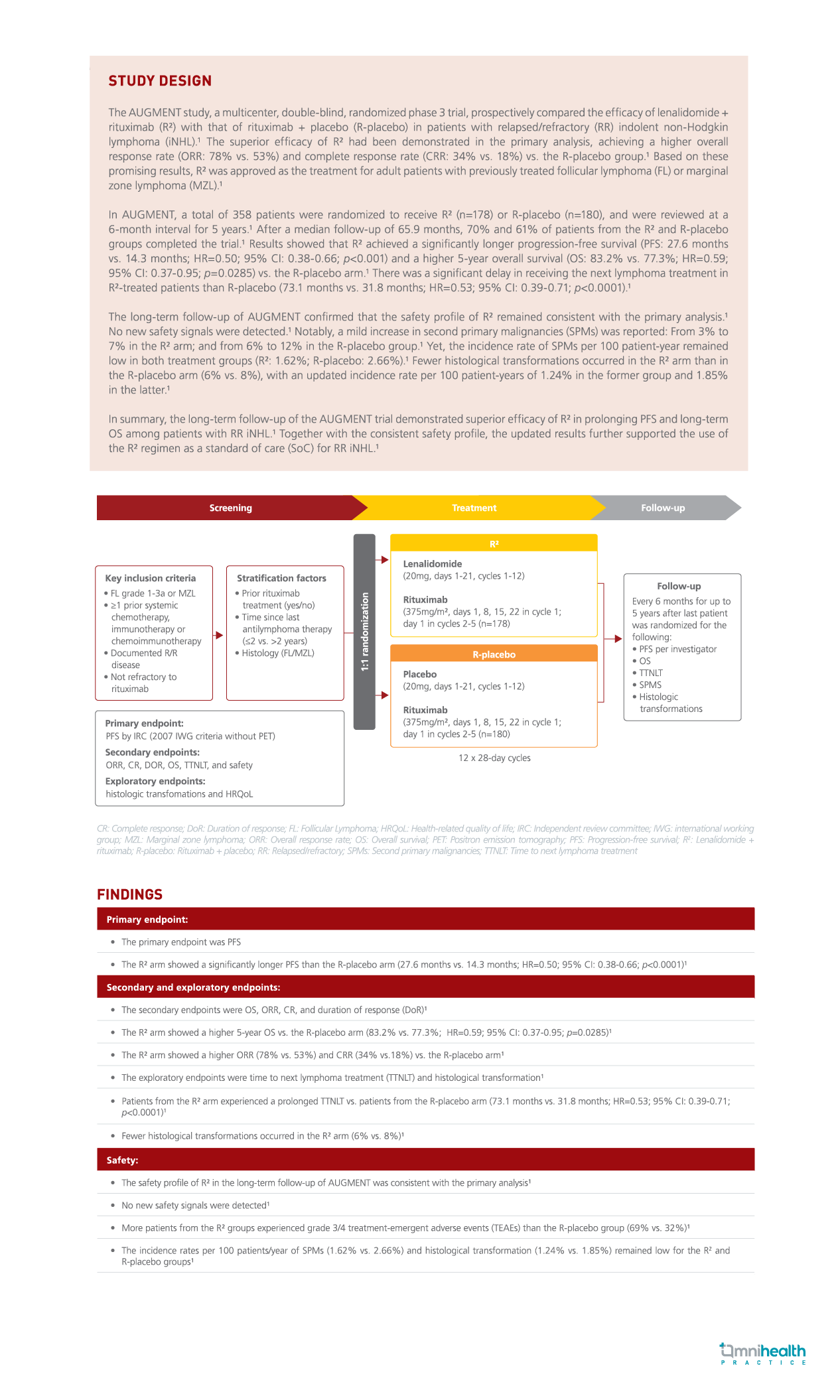Follicular lymphoma (FL) is characterized by periodic relapses, refractoriness, reduced progressionfree survival (PFS), and a low response rate with successive conventional treatment lines. Progression of FL within 24 months from the initial start of therapy (POD24) and its refractory nature result in poor prognosis.1 Hence, a potent alternative treatment is essential, given the refractory and unyielding nature of FL.
This phase 1/2 study of 90 pretreated patients evaluated the effectiveness of mosunetuzumab, which is a CD20 x CD3 bispecific antibody (Ab) that redirects T cells to destroy malignant B cells.1 Patients with relapsed/refractory (rr) FL who received at least ≥2 prior lines of therapy (3L + rrFL) were administered with mosunetuzumab monotherapy1. The selection criteria for the cohort of patients were grade 1-3a FL, the Eastern Cooperative Oncology Group (ECOG) performance status (PS) ≤1 and at least ≥2 prior lines of therapy.1 Mosunetuzumab was infused by step-up dosing in cycle 1 (C1) to mitigate the effects of cytokine release syndrome (CRS), facilitating treatment without hospitalization.1 Results after the median follow-up of 18.3 months revealed that mosunetuzumab fixed-term treatment (21 cycles) was durable and increased complete response (CR) rates in FL patients.1 The study met the primary endpoint with a significantly high CR rate.1 As per the findings of the study, mosunetuzumab, which can also be administered as an off-the-shelf outpatient therapy, elicited a durable efficacy, a high CR rate and a tolerable safety profile.1

